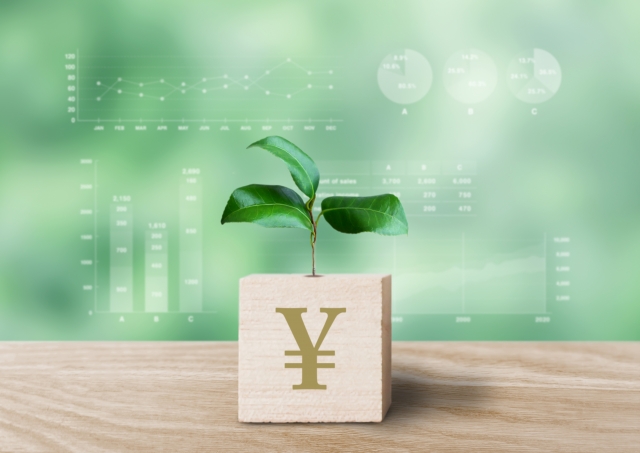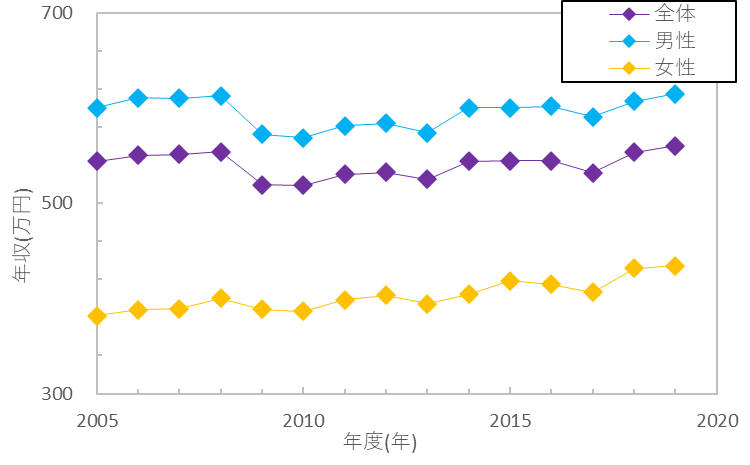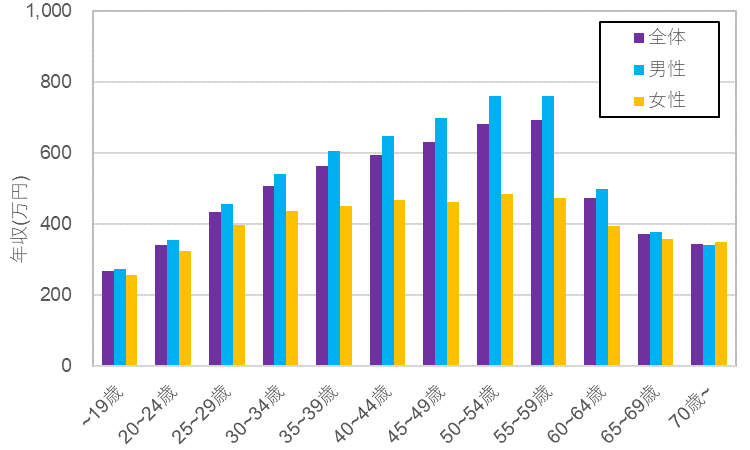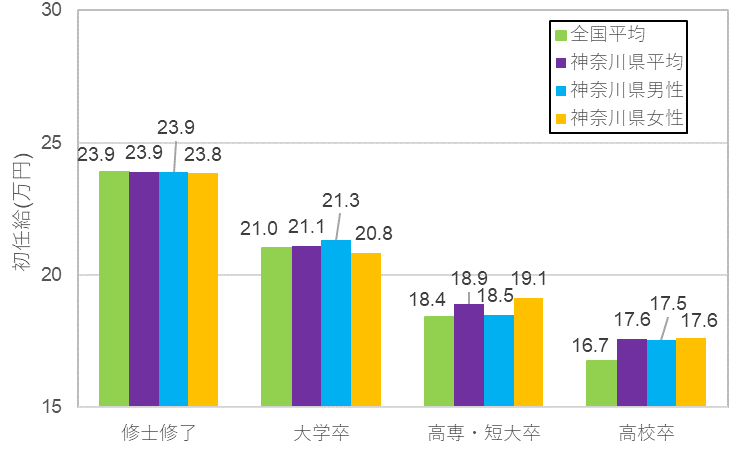What is the average salary in 【Kanagawa】? We have put together a complete national comparison by age and by occupation.
2021-04-20
Jobs in Japan

Average Salary in Kanagawa Prefecture
Kanagawa is the second most populous prefecture in Japan, with a population of 9.177 million in 2018. It also had a nominal GDP of 35.6 trillion yen in 2017. Kanagawa forms part of the Keihin Industrial Zone, which consists of metropolitan Tokyo, Kawasaki, and Yokohama. Kawasaki and Yokohama are both ordinance-designated cities of Kanagawa and major industrial hubs that serve as the economic center of the prefecture. The Port of Yokohama has also served as the center of Japan’s international trade for over 150 years. This has helped build Yokohama into one of Japan’s most international cities. Leveraging its position in the same economic bloc as Tokyo, Kanagawa has maintained a booming economy and one of the highest average salaries in Japan.
・Kanagawa Average vs. National Average Annual Salary
The following table shows the average annual salary in Kanagawa Prefecture. The overall annual average is 5.602 million yen, higher than the overall national average. Men earn an average of 6.15 million yen annually, which is remarkably high considering that only a few prefectures have an average of over 6 million. This is also reflected in the overall average bonus in Kanagawa which is 1.084 million yen annually.
| 2019 Kanagawa Ave. Salary | Overall | Men | Women |
| Annual (yen) | 5,602,000 | 6,150,000 | 4,340,000 |
| Monthly (yen) | 377,000 | 409,000 | 301,000 |
| Annual bonus (yen) | 1,084,000 | 1,239,000 | 727,000 |
| Average age (years) | 43.4 | 44.2 | 41.6 |
| Working population | 1.138 million | 793,000 | 344,000 |
For comparison, the table below shows the average for all of Japan. The national average annual salary is just over 5 million yen, which is 600,000 yen lower than the Kanagawa average. On the other hand, the working population in Kanagawa is relatively low. As a percentage of the overall prefectural population, Kanagawa has a working population of 12.4%, compared with 17.7% for all of Japan. This is likely due to the fact that many Kanagawa residents commute to Tokyo to work (the same applies for other prefectures around Tokyo). For comparison, the working population in Tokyo as a percentage of the prefectural population is 26.6%.
By prefecture, Tokyo has the highest annual average salary in Japan, which is probably a factor in why many Kanagawa residents choose to work in Tokyo. It can thus be inferred that the standard of living in Kanagawa is higher than what its annual average salary suggests.
| 2019 National Ave. Salary | Overall | Men | Women |
| Annual (yen) | 5,007,000 | 5,610,000 | 3,880,000 |
| Monthly (yen) | 338,000 | 375,000 | 269,000 |
| Bonus (yen) | 951,000 | 1,111,000 | 652,000 |
| Average Age (years) | 43.1 | 43.8 | 41.8 |
| Working population | 22.18 million | 14.45 million | 7.73 million |
Kanagawa Average Annual Salary by Gender

The following graph shows the average annual salary in Kanagawa by gender for the 15-year period from 2005 to 2019. The overall graph shows a significant drop between 2008 and 2009, which shows that wages in Kanagawa were strongly affected by the 2008 Global Financial Crisis. This drop is more pronounced in men than in women. Men’s wages remained stagnant until 2013, before recovering from 2014 onwards. Looking at the trend for the entire period, the overall annual salary went from 5.438 million in 2005 to 5.602 million in 2019, showing just a slight increase. The trend is slightly different for women, as their annual salary went from 3.819 million in 2005 to 4.34 million in 2019, an increase of 13.7%. In the future, women’s salaries are expected to increase further, narrowing the gender wage gap.
Kanagawa Average Annual Salary by Age Group
The following graph shows the average annual salary in Kanagawa Prefecture by age group. We also provide an analysis for each age group below.

・Average Annual Salary for Workers in their 20s
The average annual salary for Kanagawa workers in their 20s is relatively high, with an overall value of over 4 million yen for people in their late 20s. Kanagawa women in their late 20s earn nearly 4 million yen, higher than the 3.727 million yen average for all of Japan. However, the gender wage gap tends to widen significantly as the age increases.
・Average Annual Salary for Workers in their 30s
The early 30s seems to be a break off point for the gender wage gap, with men’s wages increasing steadily from this age group onwards, while women’s wages start to become static. By the late 30s, the gender wage gap increases to 1.56 million yen annually.
・Average Annual Salary for Workers in their 40s
Men’s wages continue to increase as the age goes from the 30s to the 40s, although at a slightly slower rate, followed by significant jump in the early 50s. This seems to be a peculiar trend in Kanagawa. In other prefectures, men’s wages tend to increase at a constant rate from the 20s to the 50s. For women’s wages, a slight drop occurs from the early 40s to the late 40s, before increasing again in the early 50s. Workers currently in their late 40s are said to be the “employment ice age” generation.
・Average Annual Salary for Workers in their 50s
The annual salary for Kanagawa workers peaks in the 50s, with men reaching the peak in late 50s, with an average of 7.629 million yen. Women’s wages peak in the early 50s, with an average of 4.858 million yen.
Average Entry Level Salary in Kanagawa
The following graph shows the average entry-level salary in Kanagawa Prefecture by level of education. High school graduates earn 176,000 yen monthly, almost 10,000 yen higher than the national average. For junior or technical college graduates, the average salary is higher for women than for men. For university graduates and master’s degree holders, the entry-level salary in Kanagawa is nearly equal to the national average.

Kanagawa Average Annual Salary by Industry
The table below shows the average annual salary in Kanagawa Prefecture by industry for the year 2019. For almost all the industries, Kanagawa ranks high among all 47 prefectures. It even took the top spot ahead of Tokyo for Information and Communications, with an average annual salary of 6.369 million yen. The industry with the highest annual salary in Kanagawa is Scientific Research, Professional, and Technical Services, paying 6.923 million yen on average. Another high-paying industry is Education and Learning Support, with an annual salary of 6.385 million yen.
On the other hand, industries that pay relatively lower in Kanagawa include Accommodations/Food and Beverage, Living-related and Amusement Services, and the Service industry, all with annual salaries in the 3-million-yen bracket. Still, Kanagawa ranks second among all prefectures for Accommodations/Food and Beverage and the Service industry, which indicates that pay is generally on the low side for these industries nationwide.
| Industry | Average annual salary | Rank |
| Mining and Quarrying of Stone and Gravel | 4,929,000 yen | 8 |
| Construction | 5,705,000 yen | 3 |
| Manufacturing | 5,513,000 yen | 2 |
| Electricity, Gas, Heat Supply and Water | 5,827,000 yen | 27 |
| Information and Communications | 6,369,000 yen | 1 |
| Transport and Postal Activities | 4,148,000 yen | 5 |
| Wholesale and Retail Trade | 4,997,000 yen | 4 |
| Finance and Insurance | 5,780,000 yen | 3 |
| Real Estate and Goods Rental/Leasing | 4,993,000 yen | 3 |
| Scientific Research, Professional, Technical | 6,923,000 yen | 2 |
| Accommodations/Food and Beverage | 3,771,000 yen | 2 |
| Living-related and Amusement Services | 3,797,000 yen | 6 |
| Education, Learning support | 6,385,000 yen | 4 |
| Medical, Health Care, Welfare | 4,417,000 yen | 4 |
| Compound Services | 5,271,000 yen | 3 |
| Other Services | 3,919,000 yen | 2 |
Summary
While Tokyo boasts the highest national average salary, Kanagawa comes in at rank 2. Also, as we are seeing a trend of an increasing population, with the exception of Osaka Prefecture, Kanagawa also ranks 2. In conclusion, Kanagawa comes in second for both income and population nationwide
出典:令和元年 賃金構造基本統計調査 結果の概況|厚生労働省

